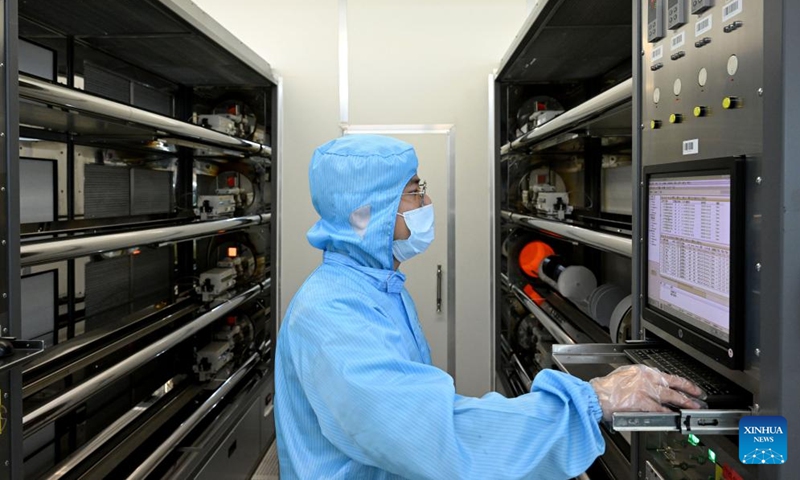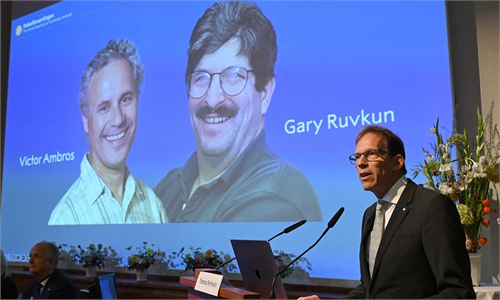Chinese scientists embrace new research paradigm powered by AI
More potential to emerge as Nobel achievements revealed

A staff member of Anhui North Microelectronics Research Institute Group Corporation Limited works on the production line of MEMS wafers in the China Sensor Valley at Bengbu City, east China's Anhui Province, Sept. 12, 2024. China Speech Valley in Hefei City, the Vision Valley of China in Wuhu City and China Sensor Valley in Bengbu City, are three key demonstration zones for the artificial intelligence (AI) industry in Anhui Province. (Photo: Xinhua)
Human scientific research may have reached a pivotal moment where scientific research landscape may adopt a new paradigm — the AI-driven research paradigm, Chinese scientists said on Thursday after the 2024 Nobel Prizes in Physics and Chemistry were announced.
The 2024 Nobel Prizes in Physics and Chemistry were awarded to scientists who made significant breakthroughs at the intersection of AI and fundamental sciences, which came as somewhat of a surprise to many. Some viewed the award as a bellwether indicating that the scientific community officially recognizes AI's decisive impact on science, while others expressed concern that AI is taking away the most prestigious honors from scientists.
The fact that this year's Nobel Prize in Physics was awarded to machine learning scientists, while the Nobel Prize in Chemistry was still awarded to three scientists in the field of computational research, reflects the significant scientific value of AI, Xu Chunfu, a researcher at the Beijing Institute of Life Sciences, told the Global Times.
"The human scientific research may have reached a pivotal moment after this year's Nobel Prize where the entire scientific research landscape may adopt a new paradigm, the AI-driven research paradigm," Xiao Yanghua, a computer science professor at Fudan University, also director of Shanghai Key Laboratory of Data Science, told the Global Times.
In the future, scientists from traditional natural sciences may utilize AI tools to enhance their research, while also seeking inspiration from natural sciences to explore and solve problems within AI. These research approaches will likely become widely adopted across basic science research, Xiao said.
The potential of AI in health fields such as biology, chemistry and medicine has only just begun to emerge, and there is still significant room for development in the future, said Xu.
While scientists embrace the changed research paradigm and immerse themselves in the joy that AI brings them, they are also aware of its limitations.
AI, as an extension of human intelligence, is still fundamentally just a tool that performs auxiliary roles under the supervision and control of scientists, Xiao noted.
Whether AI can currently propose new, groundbreaking theories like human scientists is still questionable, the expert said.
Some have commented on whether the Nobel Prize being awarded to AI means it is about to surpass humanity and if AI is taking away the most important honors from scientists. Xiao said that "No matter how advanced AI becomes, it is still created by humans."
From the perspective of scientific research, we need to recognize that AI can also make mistakes, Xiao noted. Xu emphasized that scientists should apply AI more responsibly and refrain from using it for scientific research that violates ethical standards or is harmful to human health.



